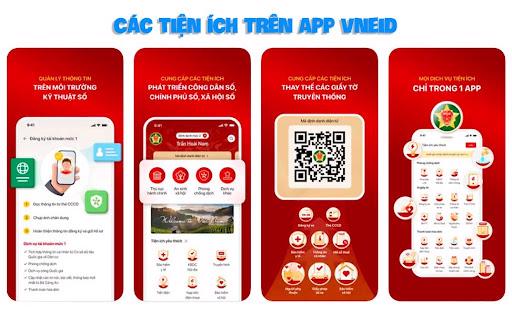In a significant push towards digital governance, Vietnam is implementing a nationwide mandate for VNeID, a mobile application that functions as a digital identification and authentication platform.
This policy, spearheaded by Deputy Prime Minister Tran Luu Quang, requires all citizens to utilize VNeID for accessing online public services from July 1, 2024. The Vietnamese government anticipates this initiative to streamline administrative procedures, minimize redundancy, and bolster cybersecurity in the realm of e-government services.
VNeID: A Multi-Functional Digital Identity
Developed by the Ministry of Public Security, VNeID serves as a virtual ID card, eliminating the need to manage multiple accounts across various government agencies.
It streamlines access to a plethora of online public services, including applications for criminal record certificates, social security benefits, and health insurance cards. Additionally, VNeID facilitates online payments, negating the requirement for physical visits to government offices.
Benefits for Citizens and the Government
The Vietnamese government expects VNeID to bring about a multitude of advantages for both citizens and itself. Citizens will experience enhanced convenience and time savings by interacting with the government through a single, unified platform.
VNeID eliminates the need to remember numerous login credentials for various government services. Moreover, the app simplifies procedures and minimizes the need for physical visits to government offices.
For the government, VNeID adoption promises to streamline administrative processes, reduce paperwork, and enhance efficiency. The platform can potentially lead to cost savings associated with managing multiple login systems and databases. Additionally, VNeID strengthens cybersecurity by consolidating user identities and potentially mitigating the risks of fraud.
Challenges and the Road Ahead
While VNeID presents a compelling solution for streamlined e-government services, challenges remain. Ensuring widespread citizen adoption necessitates robust public awareness campaigns to effectively communicate the app's benefits and functionalities.
Furthermore, guaranteeing the security of VNeID data is paramount. The Vietnamese government must prioritize robust cybersecurity measures to protect user privacy and prevent unauthorized access.
In conclusion, Vietnam's adoption of VNeID represents a significant step towards a more efficient, user-friendly, and secure digital government infrastructure. The success of this initiative hinges on effective communication strategies to promote VNeID usage and unwavering commitment to data security.









 Google translate
Google translate